Quis autem velum iure reprehe nderit. Lorem ipsum dolor sit nulla or narjusto laoreet onse ctetur adipisci.
Quis autem velum iure reprehe nderit. Lorem ipsum dolor sit nulla or narjusto laoreet onse ctetur adipisci.
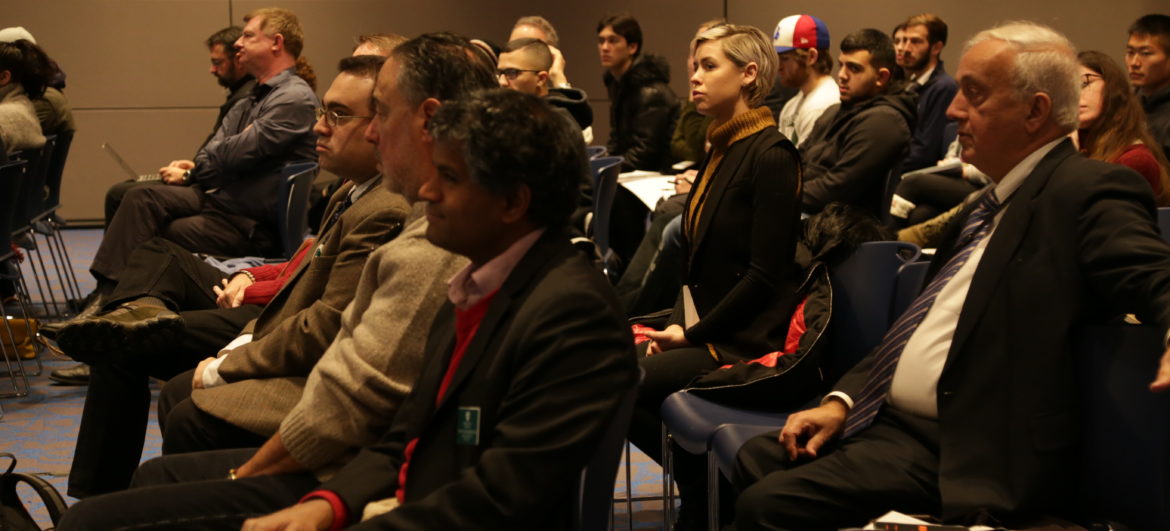
“Talent is universal. Opportunities are not.” — Day 2 of the RME Network Conference in New York City
By Dr. Monika Hubbard
After a snowy night and morning in New York City, the second day of the international conference of the RME Network kicked off with a roundtable on best practices of refugee education. Chaired by Dr. Michele Pistone, a Professor of Law from Villanova University, academic experts presented their programs for refugee and migrant students, either based on campus or offside.
For Dr. Michael Ondaatje from the Australian Catholic University any “investment in people is a good investment.” The Thai/Burma program at ACU was set up in 2003 and “the opportunities that come out of it are mind-boggling,” he says. To make a larger impact, however, it is crucial for Ondaatje that universities partner with other institutions.
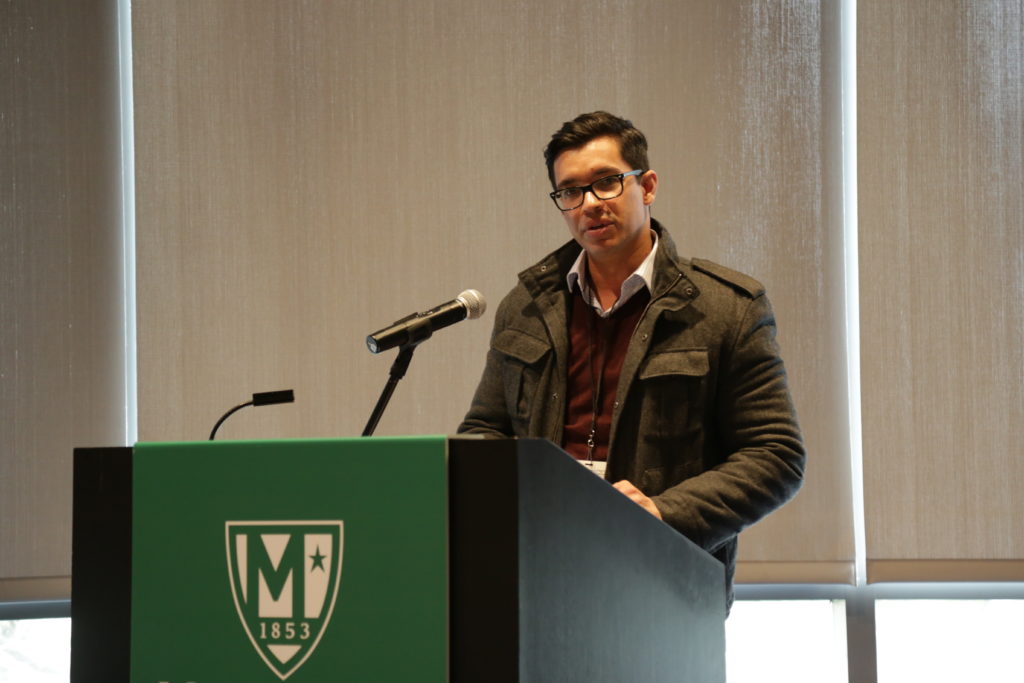
Dr. Michael Ondaatje, Australian Catholic University
Presenting the concept and impact of the online courses at Jesuit Worldwide Learning, Armando Borja stated that only “blended learning allows to make education accessible for students in refugee camps.” He did point out, though, that in order to make education scalable, mutual accreditation and credentials are a must.
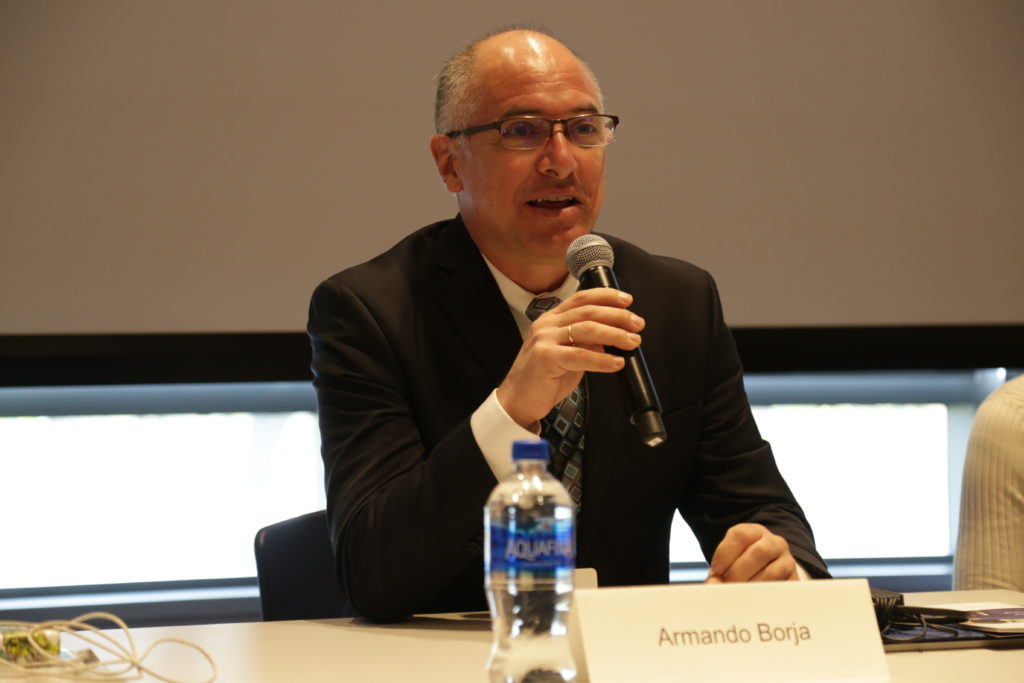
Armando Borja, Jesuit Worldwide Learning
Dr. Kerry Bystrom presented the Program for International Education and Social Change (PIESC) run at Bard College Berlin. More than 10 Percent of the currently 300 enrolled students are refugees, and the program has made a huge and positive difference to their community.“We are so lucky to take Syrian refugees who are locked out of the US education system by current migration policies,“ said Bystrom. “This program is also an opportunity to rethink how we teach and what kind of knowledge is valuable to our students” — something that all their students benefit from.
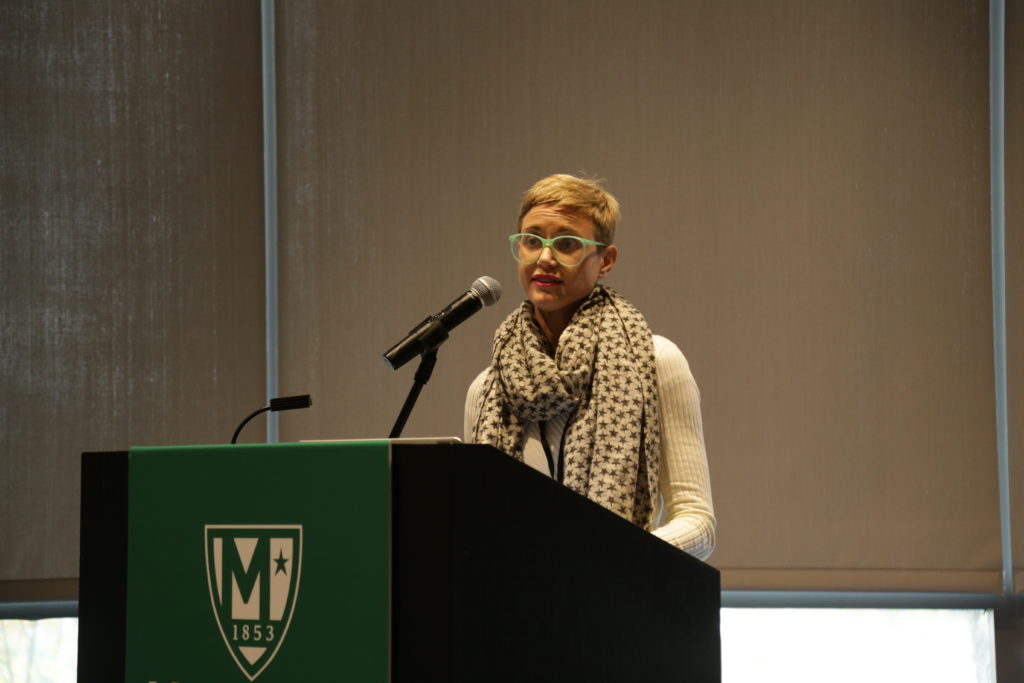
Dr. Kerry Bystrom, Bard College Berlin
When Dr. Michele Pistone took the floor herself, she told the audience how angry she was “at a system that is built for failure”. So she decided to design the first-ever university-based, certificate-based program to train non-lawyers to become immigrant advocates and support immigrants in court. “The lack of access to justice has troubled me for years,” said Pistone — and when she saw an opportunity to shift the ratio of demand and supply for legal services in favor of immigrants, she acted.
Dr. Michele Pistone, Villanova University
In the following keynote on the UN Global Compacts, Kevin Appleby, Senior Director of International Migration Policy at the Center for Migration Studies of New York, laid out the process of how this “historical document”, as he calls it, was developed and adopted. Appleby has since remained critical about it. For him “it is a framework that advocates can use to hold nations accountable to a certain standard to treat migrants.” But the implementation remains unclear due to the legally unbinding character of the documents. In this context, Appleby stretched the important role of the civil society including universities in implementing the Global Compacts because those institutions have the ability to influence their governments. It is crucial, he said, to educate on the Compacts and their importance as a multilateral framework for migration governance.
Kevin Appleby, Center for Migration Studies of New York
Dr. Rolf Lofstad started the afternoon sessions by outlining the European Qualifications Passport for Refugees (EQPR) developed by the Norwegian Agency for Quality Assurance in Education. It aims to identify and present refugees’ qualifications in a standardized and structured document. “Refugees want to be seen and heard,” said Lofstad. “We have the methodology. We have a product. It works.”
Dr. Rolf Lofstad, Norwegian Agency for Quality Assurance in Education
The last keynote address of the day was by Archbishop Bernardito Auza. He reminded the conference participants of the moral and ethical responsibilities of universities in response to the global realities of migrants and refugees. With his inspiring talk of what is expected from academic institutions — research, education and social advocacy —, he set the tone for the panel responses. Rabbi Marc Kline from the Monmouth Reform Temple underlined his belief that “if we don’t share what’s at stake, who can? And when we decide to ignore or belittle people, it will affect all of us.” Dr. Mehnaz Afridi, who is deeply involved in interfaith work both as a professor and as the director for the Interfaith Education Center at Manhattan College, closed the panel by calling on the society not to “reject the crisis, but to lend a hand to solve it. If you aren’t to accept strangers, then aren’t we strangers ourselves?”
The full speech of Archbishop Bernardito Auza can be found here.
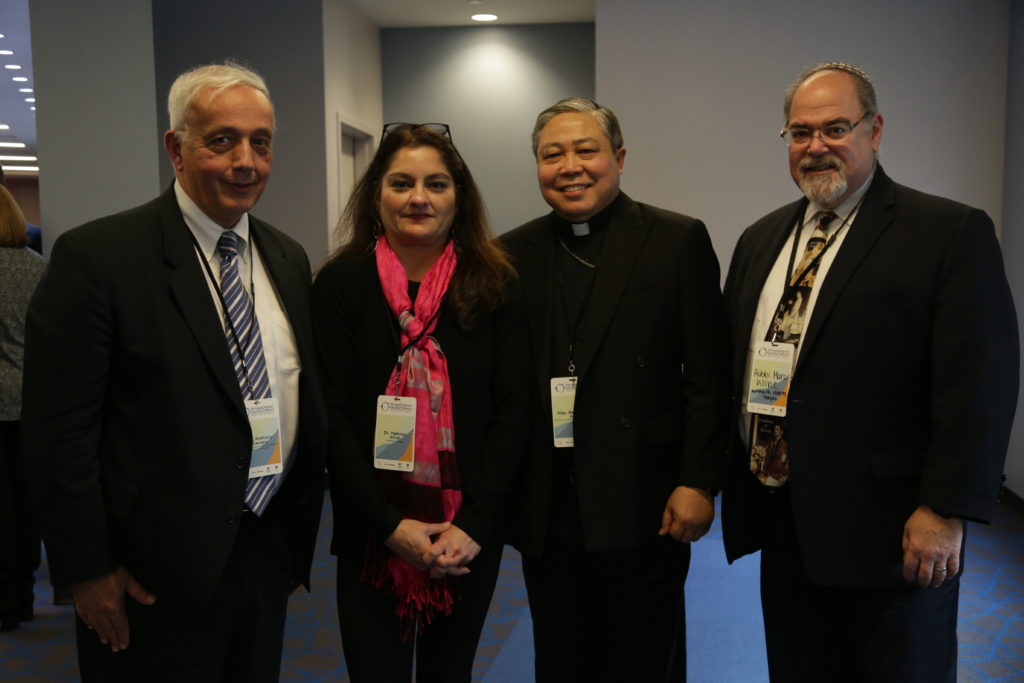
Dr. Anthony J. Cernera, Dr. Mehnaz Afridi, Archbishop Bernardito Auza, and Rabbi Marc Kline
(from left to right)
The day was accentuated by workshops on best practices of Teaching and Social Responsibility, two areas that the RME Network has established as focal points of their work.
The plenary sessions were wrapped by Dr Paulina Guzik who presented the idea of a human aspect when building the Refugee & Migrant Education Network: “Universities are places where future leaders are being educated. They have to know who refugees are, and they have to advocate for them. We, as university professors are at the frontline of this task.” She ended her talk with summarising the vision of the network: “RMEnetwork.org is the hub where we share ideas and give birth to a hope. If only one migrant or refugee gets higher education thanks to this connection, then that is turning hopes into realities for us.”
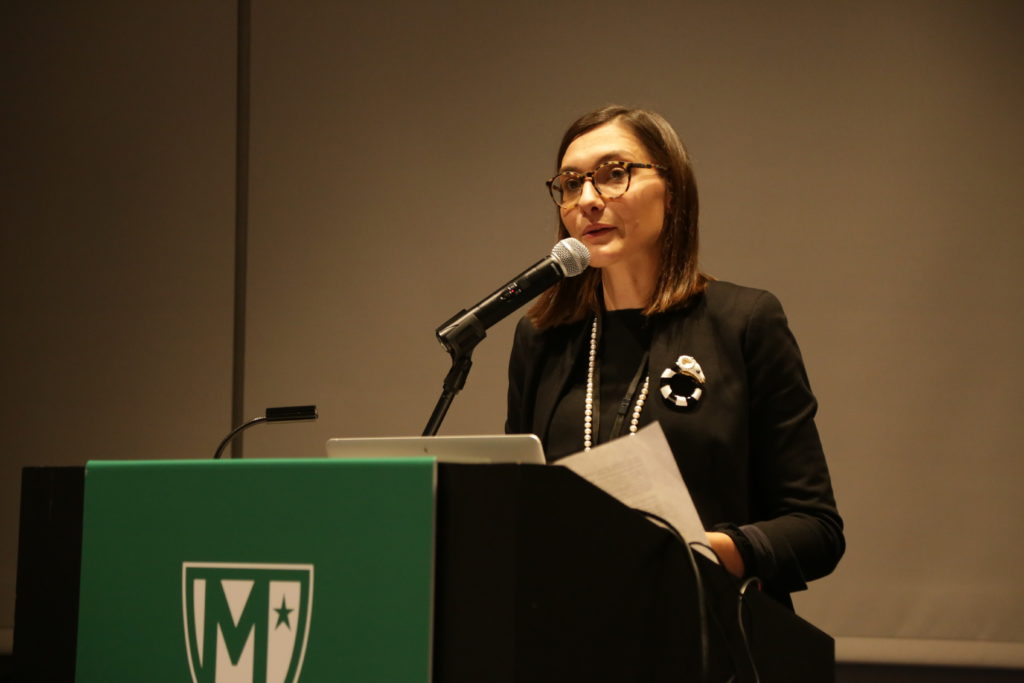
Dr. Paulina Guzik, Refugee & Migrant Education Network/Pontifical University of John Paul II in Krakow
Videos of best practices presented at the conference by universities can be found here.
More voices from Day 2:
“The diploma is more than just a pathway. It means a change of history, for the students and for their families.”
“Talent is universal. Opportunities are not“
“We believe in education as a bigger purpose. “
Dr. Michael Ondaatje
“Learning English has become a catalyst for education.”
“Education changes and transform lives.”
Armando Borja
“The world has to be a whole; all of it!”
“Universities have to provide the skills, so people can learn to be secure in their home, or their new home.”
“Repair the world; and when it happens it will be for all of us and not only for some.”
Rabbi Marc Kline
“Accepting refugees in our classrooms is not accepting refugees, it is accepting students. We have to think about it as a normality.”
Dr. Paulina Guzik
Videos from Day 2 :
1/ Roundtable on Refugee and Migrant Education
Moderator: Prof. Michele Pistone (Villanova University)
Responders: Dr. Kerry Bystrom (Bard College Berlin), Armando Borja (JWL), Dr. Michael Ondaatje (Australian Catholic University)
2/ Teaching Non-Lawyers to Become Immigrant Advocates
Prof. Michele Pistone (Villanova University)
3/ The Global Compacts and the Challenge for Universities
Kevin Appleby (The Center for Migration Studies of New York)
4/ Workshop sessions
Keeping Refugee Girls in School
Fr. Michael Smith (Jesuit Refugee Service), Dr. Tina M. Facca Miess (Jesuit Worldwide Learning)
Teaching About Refugees
Dr. Andrew Rasmussen (Fordham University), Dr. Brinton Lykes (Center for Human Rights), Dr. Luisanna Sardu (Manhattan College)
5/ The Recognition of Degrees: The European Passport Model
Rolf Lofstad (Norwegian Agency for Quality Assurance in Education)
6/ The Moral and Ethical Responsibilities of Universities in Response to the Global Realities of Migrants and Refugees
Archbishop Bernardito Auza
Panel Responses: Chair: Fr. René Micallef, SJ (Pontifical Gregorian University), Dr. Mehnaz Afridi, (Manhattan College), Rabbi Marc Kline (Monmouth Reform Temple)
Refugee & Migrant Education Network
Dr. Paulina Guzik (Pontifical University of John Paul II Krakow)
7/ 2nd Workshop session — videos coming soon…
Student Engagement on Refugee and Migrant Issues: Best Practices, Riccardo Buono and Manhattan College Students
Universities at the Service of Refugees and Migrants: Financial Issues and Resource Allocation

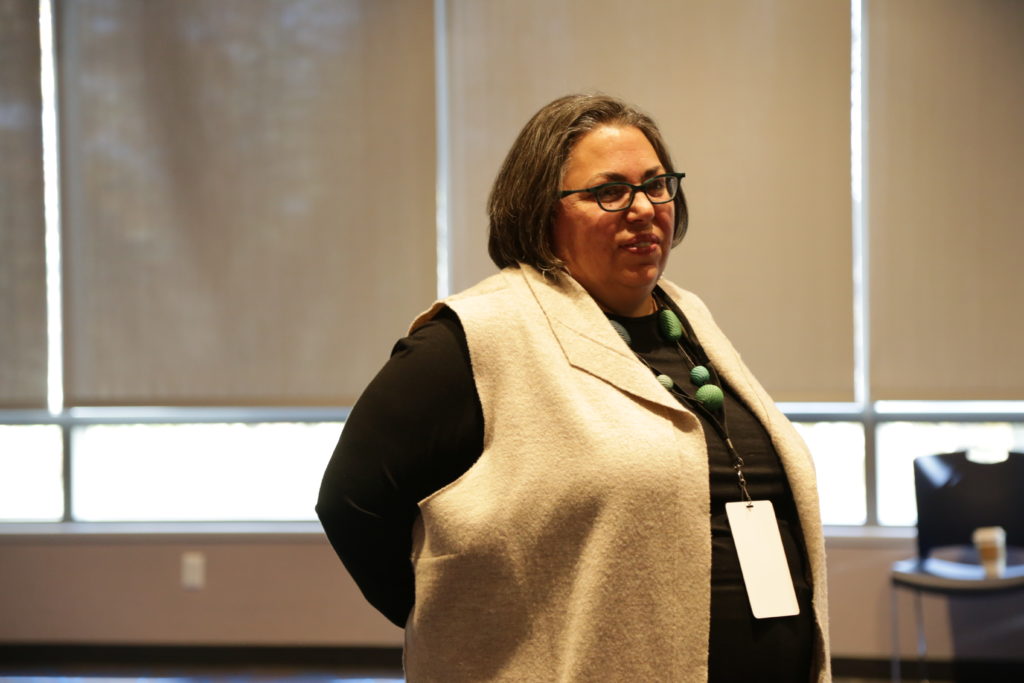
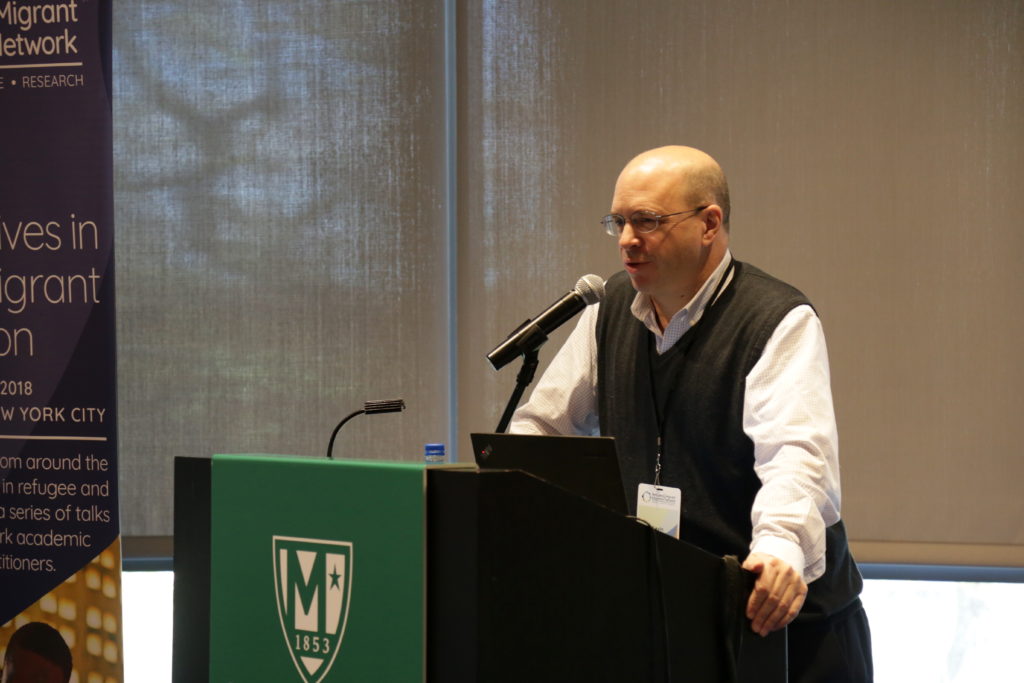
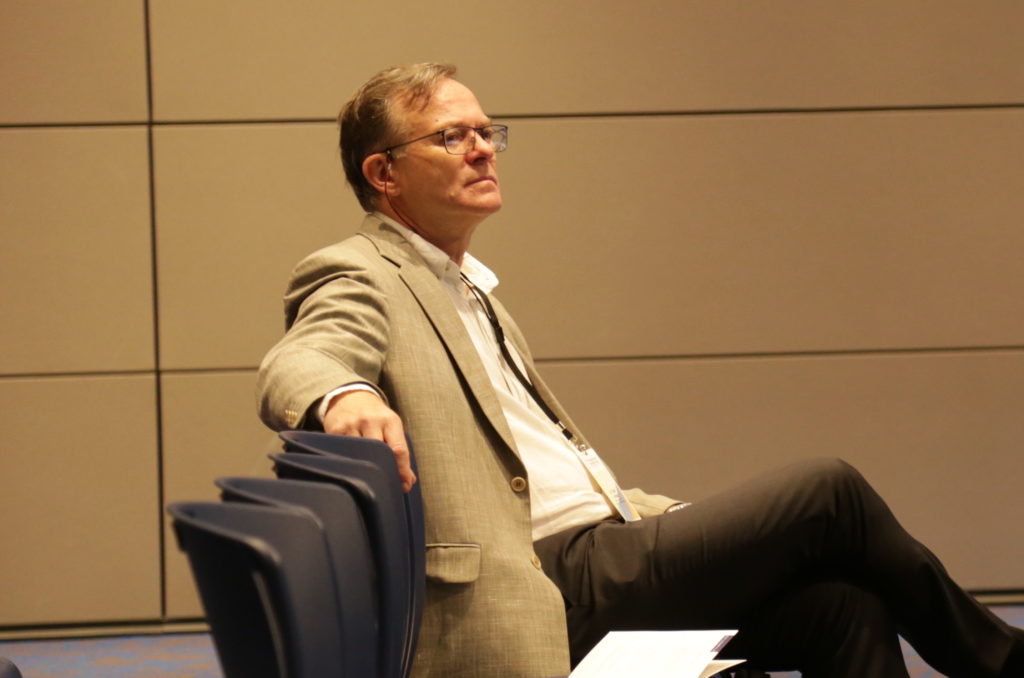
You must be logged in to post a comment.